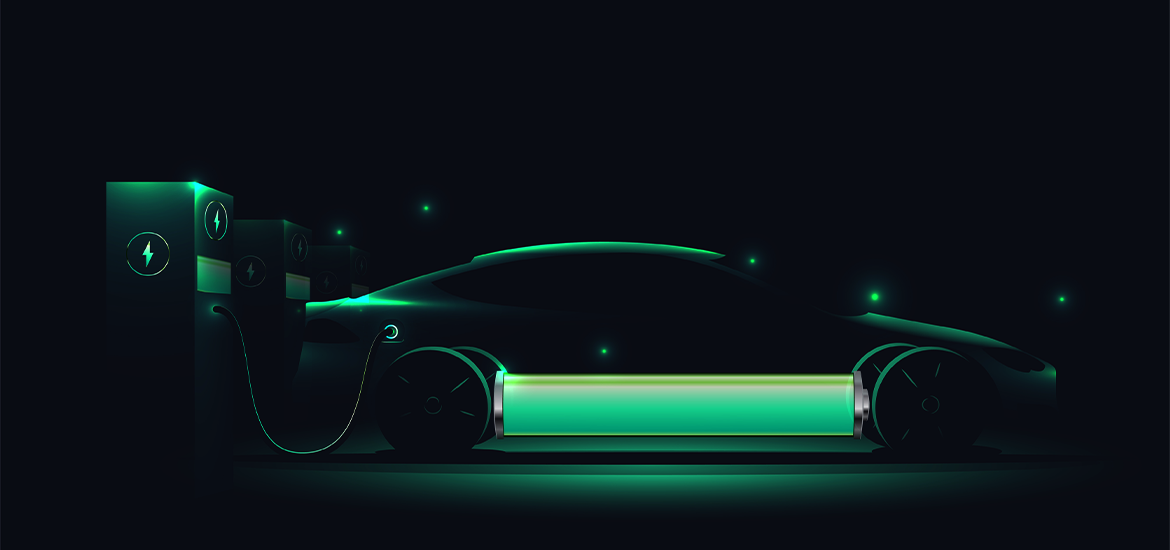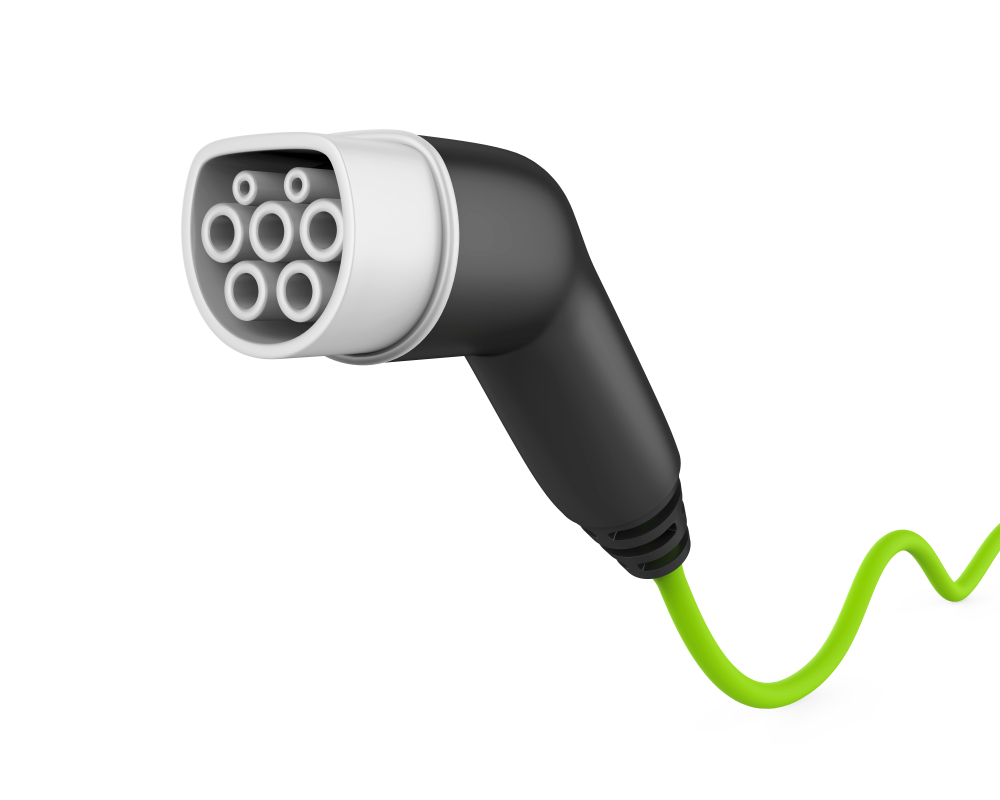
How to Charge Your Electric Car
Find out how to safely charge your electric car at home and on the go
To protect your electric car’s (EV) battery, you must be able to charge it properly - because EVs can't charge themselves! There is a set procedure for plugging in and unplugging the charging cable which varies slightly depending on where you charge your electric car.
Read on to find out how to charge your electric car at home and at a public charging station, as well as the correct way to unplug the charger.
What Charging Cable Do I Need?
Most electric cars currently available in the UK use a Type 2 socket and cable. This is the standard point across home and public charging points. These supply AC (Alternating Current) vs rapid charging points which provide DC (Direct Current).*
A type 2 plug looks like a chunky fuel pump, usually with 7 circular connectors arranged in an oval pattern. This plugs into a similarly shaped socket on your car.

How to Charge an Electric Car Using a Home or Public Charging Point
This process is for charging an electric car using a Slow (3-5kWh) or Fast (7-22kWh) charging point, either at home or at a public charging station. If you plan on charging your car in public, you must bring your charging cable with you.
- Plug one end of the cable into your car’s charging point and plug the other end into the charging station.
- Wait for a green or blue light to show somewhere near your car’s charging point. This indicates that it is charging properly. You can also check that your car is charging properly on the dashboard. A red light means there is a problem with the charging process.
- Allow your car to charge for as long as it needs. You can leave your car while it charges as the cable locks into place and can only be removed when you unlock the car.
- Once your car is fully charged, unlock it and remove the charging cable. You must unplug it from the car first and then from the charging station. Remember to put the cable back in the boot and take it home with you.
How to Unplug an Electric Car Charger
Once you have locked an electric car charger into place, the only way to remove it is from within the cabin.
To unplug the electric car charger, unlock the car and push the unlock button. Make sure you know how to do this before buying the car or consult your vehicle handbook if you're unsure.
You can then unplug the other end of the charger from the charging station.
How to Charge Your Car Using a Rapid Charging Point
Rapid chargers use 'tethered cables', which are permanently connected to the charge points. Most UK rapid chargers have the two most popular connector types attached, so any car able to use rapid charging can plug in easily. Just make sure you select the right connector for your vehicle.
*The Renault Zoe is the only all-electric model available which uses AC rapid charging instead of DC. Many rapid chargers will have this attached as a third cable, but you should check before travelling.
Where is My Car’s Charging Point?
Electric cars have a charging point installed in a range of places. For some, like the Nissan Leaf and Renault Zoe, the charging point is at the front of the car. For others, like the BMW i3, the charging point is where a conventional fuel tank would be. In some other models, the charging point is nearer the front of the car but on the side.
Make sure you can easily locate the charging point on your electric car before you buy it. If you’re struggling, ask the salesperson to point it out for you. You should also make sure they let you know what type of charging cable your electric car uses.
Can I Charge an Electric Car Using an Extension Cable?
You can plug an electric car directly into the mains using the standard 3-pin plug provided with the vehicle. However, this is a highly inefficient way of charging your electric car and should only be used for emergencies. It can take in excess of 24 hours to fully charge an electric car in this way and you can also overload an extension cable or other domestic power supply.
If you have to use a standard 3-pin plug, you should remain nearby to keep an eye on your electric car while it charges. You should also avoid charging in this manner for long periods of time.
The most efficient way to charge an electric car at home is to install a wall-mounted charging point.
You can also buy portable EV chargers.
Read More
How Much Does it Cost to Install a Home Charging Point in the UK?
If you’re looking to buy your first electric car, you will need to buy and install a home charging point at the same time. This makes charging your EV much more convenient and helps you save on charging costs as well. Find out how much it costs to do so in this article.
Can I Charge an Electric Car at Home If I Don't Have a Driveway?
While home charging is the most convenient way to recharge an electric car, not every driver has access to a driveway. If your house only has access to on-street parking, you may be wondering if you can even charge an EV at home. Find out the answer to your questions here.
How Long Does it Take to Charge an Electric Car?
There are plenty of charging options for electric cars and some are faster than others. This article details how long it takes to charge an electric car at home and at a public charging point, as well as using a Slow, Fast, Rapid or Ultra-Rapid charging point.
Where Can I Charge My Electric Car? (UK)
Charging an electric car is a key part of owning one. However, while charging points are becoming more commonplace, they are still not as widespread as petrol stations. Find out how you can keep your EV charged while on the move here.
Electric Car Charging Cables: 5 Things You Need to Know
To charge your electric car properly and safely, you need to use the right charging cable in the right way. Learn more about EV charging cables in this guide, including how to tell which one your vehicle needs.